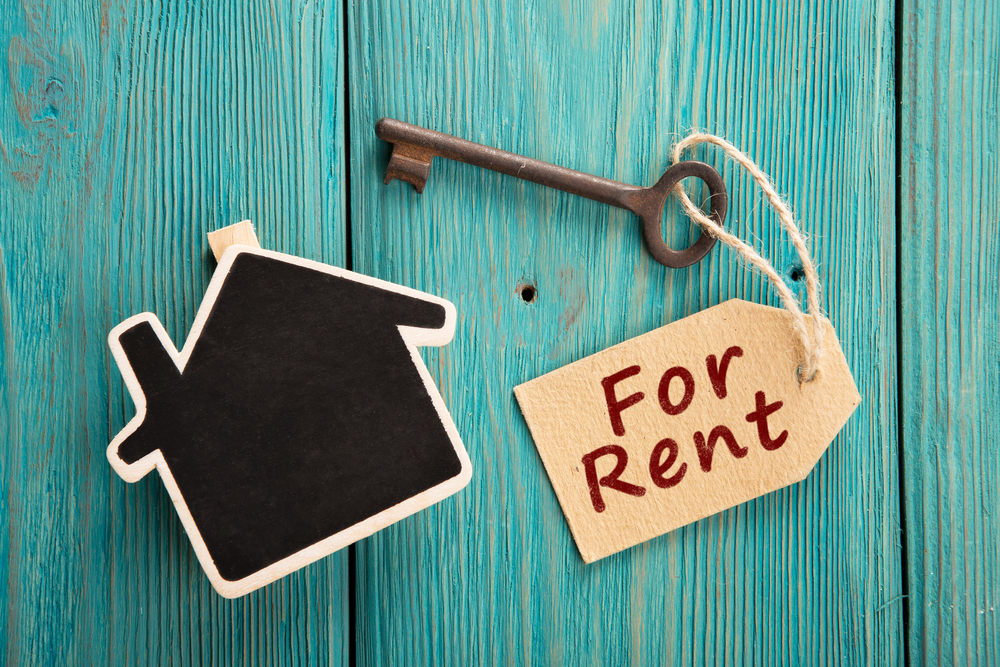How to close on your first property and accelerate your journey to financial freedom
So, you’re thinking about buying a home for the first time. That’s great news! From increased financial security and tax benefits to having a permanent roof over your head and being part of a local community, there’s a lot to like about becoming a homeowner.
If you’re looking to achieve long-term financial independence, a home purchase is one of the smartest investments you can make. According to a recent study from the Federal Reserve, U.S. homeowners have a median net worth of $255,000. Renters, on the other hand, have a median net worth of just $6,300 — a difference of 40x!
While the benefits of being a homeowner speak for themselves, the process of buying your first home isn’t exactly a walk in the park. Truth be told, the experience can be downright crazy and filled with emotional ups and downs.
To make your journey easier, we’ve put together this comprehensive guide that outlines everything you need to know about becoming a first-time homebuyer, including:
- How to think about financing your first home
- The pros and cons of working with a real estate agent
- What to look for in a property
- Tips on negotiating a deal
- What to expect after an offer is accepted
- Hidden homeowner costs to consider
- Unforeseen challenges you might encounter
- First-time homebuyer mistakes to avoid
- Additional resources that can help you throughout the process
Buying your first home: The home loan financial component
There are two main types of loan programs available when it comes to mortgages, and you’ll want to determine your eligibility. First, conventional loans are the most common type of loan, and are not backed by the government. Then there are non-conventional loans which are backed by the government. Much more details on the differences between the two a bit later on.
Whether you’re buying a house for $2 million or $400,000, you should aim to have at least 20% of the purchase price upfront for a down payment. The remaining balance of the home price is the loan amount you are requesting. Having at least that 20% up front will enable you to avoid paying for private mortgage insurance (PMI), which most mortgage lenders require when buyers put down less than 20%.
While it’s possible to procure a home with as little as 3% down payment via the 97% loan-to-value mortgage program or 3.5% down payment by taking out a loan from the Federal Housing Authority (FHA), doing so is unadvisable, since PMI can cost as much as 2.5% of your total mortgage.
Of course, it never hurts to put down more than 20% if you have the money. The more money you put down, the lower your monthly loan payments will be.
For example, if you put down 20% on a $500,000 house and obtain a 30-year fixed mortgage at 4%, your monthly payment would be $1,910 (excluding property taxes and insurance). If you buy that same house with the same mortgage rate but only put down 10%, the payment increases to $2,148 per month (again, excluding property taxes and insurance). Plus, you’ll also be on the hook for PMI!
If you were to put down 30% in this same situation, however, your monthly payment would decrease to $1,671. You get the gist.
Tips for saving for a down payment on your first home
Saving up for a down payment can be a massive undertaking for first-time homebuyers. Here are some tips to make the process easier.
Set a goal
First things first: Know your price range. You need to figure out how much you need to save up to begin with. Again, the smart play is to have enough cash that you can put 20% down towards your home loan, while still being able to afford closing costs and living costs after that. Study your finances, create a budget, determine what your ultimate goal is, and develop a plan that helps you get there.
Cut unnecessary spending
Once you’ve figured out how much you need to save, it’s time to trim the fat off your budget. Do you really need subscriptions to Hulu, Netflix, and AppleTV? Or might you be able to get rid of one of them? Instead of going out for dinner, you might want to plan on cooking more meals at home. And instead of splurging on new clothes, maybe you can ride your wardrobe for another year. Wherever you can cut unnecessary spending, strongly consider doing so.
Optimize your savings
If your money is going to be parked away in an account while you save for a house, you might as well get the biggest return on it. Rather than putting your money in a regular savings account that generates paltry interest, consider a high-yield savings account (HYSA) instead where you’ll earn a lot more.
Set up automatic deposits
Planning to save for a down payment is one thing. Actually doing it is quite another. If you’re serious about saving for a down payment for your first house, consider creating a new bank account (or HYSA account!) and automatically routing something like 5% or 10% of each paycheck there. That way, you get the peace of mind that comes with knowing you’re building up your down payment without having to manually move money.
Pocket any windfalls
Win the lottery? Inherit some money? Win your fantasy football league? Get a huge bonus at work? Any money you receive from windfalls like these should automatically be routed to the account you’re stockpiling your down payment in.
Popular mortgage options for first-time homebuyers
Assuming you don’t have enough money to buy your first home with cash, you’re going to need to secure a mortgage. As you begin exploring your options, you will likely come across a number of government-backed loans, including VA loans, which help active duty military and veterans secure properties; and USDA loans, which help buyers in more rural areas. If you’re like most first-time homebuyers, however, you will probably seek financing in one of two ways: securing an FHA loan or choosing a conventional mortgage.
Whichever route you decide, you then have to choose loan terms, which are generally 15, 20, or 30 years, with 30-year mortgages being the most popular option.
Federal Housing Administration (FHA) loans
If you’re a first-time homebuyer who has a debt-to-income ratio of 50% or less and a credit score of at least 580, you may be able to afford a home by putting down just 3.5%; if you’re able to put down 10%, your credit score can be as low as 500. For cash-strapped borrowers and folks with suboptimal credit scores, FHA loans are much easier to secure and can provide a path toward homeownership.
But if you go this route, you’ll have to pay PMI. Plus, the FHA won’t let you borrow a large amount of money, which could cause you to miss out on pricey properties you really like. And in today’s hyper-competitive housing market, sellers may be less receptive to the idea of working with someone who’s financing the deal with 96.5% debt compared to someone who’s putting down 50% cash.
Conventional mortgages
If you find yourself on solid financial ground, a conventional mortgage may be a better option — particularly if you’re able to put 20% down and have a credit score that is higher than 740, which puts you in a position to get the best terms possible. This is something that simply can’t be overlooked in our era of rising interest rates.
Of course, meeting this high bar is a challenge, and you may still qualify for a conventional mortgage as long as your credit score is at least 620 and you can put down at least 10%.
What is the difference between a fixed and variable rate mortgage?
In addition to choosing the lender you’re going to work with, you’ll also need to choose what type of mortgage you want. For most buyers, this will mean choosing between a fixed rate or variable rate mortgage.
What is a fixed-rate mortgage?
A fixed-rate mortgage is a mortgage that has the same interest rate throughout the life of the loan. For example, if you lock in at 4% for 30 years, your interest rate will be the same until you ultimately pay off your mortgage three decades from now (or sooner!). Though interest is front-loaded on these loans and the amount you pay toward principal and interest varies month to month, total payment remains the same. Due to the predictable nature of these loans, many first-time homebuyers prefer them.
What is a variable-rate mortgage?
A variable-rate mortgage, also known as an adjustable-rate mortgage (ARM), is a mortgage with interest rates that are fixed for the first few years but change over time based on how specific benchmarks like the LIBOR index perform over time. In many cases, lenders entice borrowers by offering ARMs at lower rates than fixed mortgages for a specific period of time. Once that period ends, however, rates could move higher or lower depending on the market.
Popular examples of ARM mortgages include 2/28, where the borrower has a fixed rate for the first two years and then a floating rate for the remaining 28 years, and 5/1, where the borrower has a fixed rate for five years and a rate that resets every year thereafter.
As interest rates continue to rise, more and more borrowers are rolling the dice on ARMs. If you’re planning on living at a property for just a couple of years — and can stomach increased interest rates if your plans fall through — a 5/1 ARM could be a good option; maybe you’ll be out in three years. On the other hand, if you’re looking for a home you plan to live in for many years, you may want to go with a fixed mortgage instead.
How can I get the best mortgage rate possible?
To get the best mortgage rate, you need to be able to put down at least 20% on your home, have a low debt-to-income ratio, and have a strong record of employment or success as a small business owner. On top of that, you need to have a solid credit score. Typically, the most favorable mortgages are given to buyers who have a credit score of at least 740.
Credit scores explained
Your credit score is a fluid measure that represents your creditworthiness, i.e., how likely you are to repay your debts. This score is determined by five categories:1. Payment history (35% of your score), which represents how likely you are to repay debts on time.
2. Amount owed (30%), also known as credit card utilization rate, which reflects how much of your credit is currently in use; if you have a $20,000 credit line and have spent $2,000 against it, your utilization rate is 10%. Best practices suggest keeping your utilization rate as low as you can; below 10% but higher than 0% is ideal.
3. Credit history (15%), which measures the average age of all your credit accounts. The longer your credit history, the better (keep your oldest accounts open!).
4. Credit mix (10%), which represents the different types of credit accounts you have. Most first-time homebuyers might have a mix of credit cards, student loans, and auto loans, for example.
5. Credit inquiries (10%), which reflects how often you’ve opened a new credit line in recent years. When you open a new credit card, for example, the issuer conducts a hard inquiry on your credit, which stays there for two years. Mortgage lenders might raise an eyebrow if they see you’ve applied for several new credit accounts in a short period of time, which will adversely impact your credit score.
How to increase your credit score
No matter what it looks like right now, the good news is that you can take proactive steps to improve your credit score over time. Here are some tips to keep in mind that can help you bring your score to where it needs to be when you buy your first house.
Pay off credit cards on time and don’t carry a balance
Together, your payment history and credit card utilization rate make up nearly two-thirds of your credit score. By paying your debts on time and in full, you can improve your credit score steadily over time. Whatever you do, never make the minimum payment when you’re in the market for your first home. If you can’t afford to pay your credit card bills, it’s probably not the best time to buy a house.
Stop applying for new credit (except your mortgage!)
Since hard inquiries have an adverse impact on your credit score, don’t apply for new credit unless you absolutely have to.
Keep older credit cards open
Oftentimes, people close out old credit cards they never use for convenience. Resist the temptation. If you want to improve your credit score, your oldest credit cards are your friend. Keep them open, even if you just use them to buy a can of soda once a year.
What is the mortgage process like?
In today’s competitive housing market, homebuyers need to be ready to pounce on a property the moment they make up their minds. The easiest way to do that is by getting pre-approved for a mortgage instead of trying to secure financing at the last minute.
As you begin the pre-approval process, you first need to determine how much money you can afford to spend on your house and what type of mortgage makes the most sense for your unique circumstances. Once you’ve done that, get ready to collect a lot of documentation and send it over to your broker. This includes W2 forms, 1099s, profit and loss statements (if you own a small business), bank statements, investment account statements, what your cash outflows are, and how much debt you have, among other things. During this stage, the broker will also look at your credit reports to determine your creditworthiness. By securing a mortgage pre-approval, you demonstrate that you’re a serious buyer who’s ready to make a deal.
After you’ve been pre-approved and have had an offer accepted, it’s time to put down what’s called “earnest money,” which is typically 1% or 2% of the purchase price — a token that you are legitimately interested in buying the home. Once the earnest money has changed hands, your deal is pending, and it’s time to secure your actual mortgage — and also run a title search, conduct an inspection, and get the house appraised.
At this point, you should certainly talk with the lender that pre-approved you. But you should also check in with one or two other brokers to see if you can get a better deal.
If you buy a home for $500,000, put 20% down, and secure a 30-year fixed mortgage at 4%, you will pay $687,478 over the life of your loan (plus insurance and property tax). That same deal with a 3.75% interest rate lowers your total payment to $666,886 — a savings of more than $20,000 over the life of the loan.
In other words, when it comes to mortgage rates, every decimal counts.
After approaching a few lenders and passing over your information, you will receive loan estimates, which you can then compare to figure out which lender is giving you the best deal. During this process, you may be on the hook for credit report fees, which hover somewhere near $30 per lender. Unfortunately, loan estimates don’t last forever. If you don’t act quickly, your lender may have to adjust the terms as market conditions change. To avoid that, consider securing a rate lock, which gives you the peace of mind that comes with knowing your interest rate won’t change over a determined period of time — 30, 45, or 60 days, and even longer.
Once you’ve figured out which lender you want to work with, the underwriting process begins. Generally, underwriters will require borrowers to conduct an appraisal to ensure the home is worth enough to justify the size of the mortgage loan. (Of course, you’ll be responsible for the appraisal fee; that’s another $300 to $800, depending where you’re buying.)
Hopefully the odds are on your side, and the underwriters agree to approve your mortgage. Should that happen, your interest rate will be locked in from that point forward, and you’ll be that much closer to landing the home of your dreams.
Don’t forget about tax credits
As a first-time homebuyer, you may qualify for a tax credit when you close on a new home. In 2008, for example, first-time homebuyers who took the credit received a tax refund of up to $7,500. In 2021, members of Congress introduced the First-Time Homebuyer Act of 2021, which would revive a similar tax credit. At the time of this writing, that bill still hasn’t become law. This is all just to say that first-time homebuyers need to keep their eyes peeled for potential tax credits from both their state and federal governments.
Closing costs: The first-time homebuyer’s often-overlooked financial enemy
You’ve made an offer, it’s been accepted, and now you’re finally ready to close on the property. Get ready to be hit by a deluge of additional closing costs you might not even be aware exist, including:
- Loan application fees, which some lenders charge to handle your mortgage application.
- Attorney fees, which lawyers charge to create contracts and analyze transaction-related documentation.
- Closing fees, which are paid to the entity that facilitates the closing (e.g., a title company or an attorney).
- Courier fees, which can be levied if the deal is being done with paper documents.
- Escrow deposits, including prepaying property taxes, which are often required.
- Homeowners insurance, which generally needs to be paid up front for the first year.
- Mortgage broker fees, which can range from 0.5% to 2.75% of the home’s purchase price.
- Title insurance, which protects buyers in the event a previously undiscovered lien or ownership dispute arises.
- Origination fees, which cover the lender’s administrative costs and can hover near 1% of your mortgage.
- Real estate commissions, which can be as high as 6% of the final sale price; luckily, the seller is on the hook for these costs (though they often factor into the sale price).
- Recording fees, which hover near $125 and may be charged by a town clerk’s office to process the public land records.
- Title search fees, which range between $200 and $400 and cover the costs associated with ensuring no liens or disputes impact the property you’re buying.
Depending on your unique situation, you might get hit with even more fees than this (e.g., private mortgage insurance)! Very broadly, closing costs range between 2% and 5% of your mortgage. So, if you’re taking out a $500,000 loan, you might be on the hook for an additional $25,000 in closing costs.
This is all to say that, just when you think you’ve wrapped your head around how much your first house will cost, more fees will almost certainly come your way. Be ready.
Right now, I can’t get a mortgage. Am I out of luck?
When your mortgage application is rejected, it’s easy to feel dejected. But all hope isn’t lost. Maybe now just isn’t the right time for you, and that’s perfectly okay. In actuality, being unable to get a mortgage can be a blessing in disguise, particularly if interest rates plummet by the time you’re ultimately ready to afford your first home.
If you’re unable to get a mortgage, it could be because you have a poor credit score or haven’t saved up enough for a down payment. If that’s the case, it might be time to start working on stockpiling money away and improving your credit score (or hiring a company to help you do the same; but that’ll hurt your saving-up-for-a-down-payment plan). While you’re at it, you may want to look into debt consolidation services that can help you refinance your debt and pay it off faster.
Additionally, you also might want to take a look at rent-to-own programs, which give you a path to home ownership even if you can’t get a mortgage right now. Under these initiatives, you can rent a property as a tenant and have the option to buy it when your lease ends. This can be a great way to determine if you actually like living somewhere before making one of the biggest decisions of your life. For those with less-than-optimal credit, this is also a great way to help get your credit back on track while pursuing homeownership at the same time.
Real estate agents: Pros and cons
According to the National Association of Realtors®, 87% of recent homebuyers enlisted the services of a real estate agent or broker during their latest transaction. But not every first-time homebuyer needs to hire an agent. With that in mind, let’s examine some of the top advantages of working with a realtor — and some of the reasons you might prefer to go it on your own.
Advantages of working with a realtor
Faster process
By now, you should have an idea of how complicated the home-buying process is. When you work with an agent, you get to leverage the experience of someone who lives and breathes the process day in and day out. Not only does this help you make a better purchasing decision, it also saves a considerable amount of time.
Market knowledge
In today’s booming real estate market, how can you tell that a property is priced properly? The right real estate agent will know the local market inside and out and can help you identify reasonably priced properties and those that are way above-market. This information can help you avoid making a deal you ultimately regret.
Negotiation skills
Are you ready to negotiate with another real estate agent? Because if you don’t hire an agent of your own, that’s what you’re going to need to do. By joining forces with the right agent, they will negotiate the deal on your behalf. This can help you get a better price or get the seller to include more items in the deal — like that nifty wine fridge or the area rug that really ties the room together.
Networking
Hire an agent, and chances are they will know the agent on the other side of the deal. These personal connections can help deals close smoother. Plus, agents can recommend all sorts of folks you might need to hire during the process — like home inspectors, well inspectors, septic tank companies, real estate attorneys, and more.
Disadvantages of working with a realtor
Commission
One of the biggest downsides of hiring a realtor is paying their commission. Generally speaking, realtors get between 5% and 6% of the deal as a commission, which is split evenly between the buying and selling agent (or pocketed by one agent if they’re working both sides of the deal).
If you go through the process on your own, half of that commission is wiped off the books — or all of it, if you’re buying a for-sale-by-owner (FSBO) property. So, choosing not to hire an agent could help you save a good chunk of money.
Intermediary
When you work with an agent, they communicate on your behalf to the agent representing the seller (or the sellers themselves, in a FSBO scenario). As a result, you’re incapable of directly communicating with the people on the other side of the deal. This could slow the process down considerably. It can also cause a lot of stress as you anxiously wait for an update.
Multiple clients
Unfortunately, when you hire a realtor, you’re not their only client. As such, you might have to get used to waiting. In some circumstances, you might even miss out on a deal because your agent is focused on helping someone else. Who knows? Your agent might even represent a different client in a deal you were interested in. That’s just the way it is.
Misalignment
Not every real estate agent is the same. Unfortunately, some homebuyers learn this lesson the hard way. According to the National Association of Realtors, 73% of buyers only interview one agent before hiring them. If you end up with the wrong agent, they may end up leading you down a path where you end up with a bad deal (e.g., because they care more about their commission than helping you find your dream home).
You can avoid this issue by interviewing a couple agents before deciding who to go with. Keep in mind that, once you sign an exclusivity contract with a realtor, you are bound to only use that agent until you formally cancel the contract. If you enlist another agent before doing so, you may end up in legal jeopardy. Keep in mind you can (and should) try to negotiate down the length of these contracts just in case you aren’t happy with your agent’s representation.
Are you interested in getting free advice from expert real estate agents while earning rewards as you explore buying your first property? HomeApproach has you covered.
What to think about when buying your first home
When you’re buying your first home, you’re obviously going to be interested in the house itself, the property, and what other amenities might exist in the deal (e.g., an in-ground swimming pool or an outdoor sauna). Beyond that, here are some other considerations to keep in mind:
- Neighborhood. You’re buying more than just a house and the property itself. You’re also buying the neighborhood. Is your ideal home within walking distance of restaurants and bars? Or would you prefer to live near open space so you can hike and enjoy the outdoors? Spend some time studying the neighborhood and make sure it’s somewhere you can imagine living. Also, as a general rule, avoid buying the most expensive house in the neighborhood; it could hurt you down the road.
- Schools. If you have kids or are planning to, you’ll definitely want to do some research on the local school district to make sure you’re happy with the caliber of education. Even if you don’t have kids, education is highly correlated with property values. According to the National Bureau of Economic Research, property values increase $20 per every $1 spent on education. That being the case, you might want to buy your first home in a community that invests in education.
- Property taxes. Before you sign any contract, you need to wrap your mind around local property taxes and get a sense of how your potential new town’s taxes have changed over time. In addition to taxes on your home, you may also be on the hook for taxes on motor vehicles and boats you own.
- Location. Are you happy living out in the sticks or would you prefer living closer to public transportation? Does the local pizza place deliver to the address you’re considering? Is your property close enough to the highway? Only you know the answer to these questions.
- Town politics. If you’re moving to a new area, spend some time researching the town’s politics and finances. The last thing you want is to move to an area undergoing local scandals or involved in high-ticketed lawsuits that may impact your property taxes moving forward.
- Starter home. You’re buying your first home. Do you plan on living there for as long as possible? Or might you want to flip your house in a couple years and move into your forever home from there? If you’re buying a starter home, don’t sweat it: You can defer capital gains when you buy your next home by using a 1031 exchange.
My offer was accepted! That means the process is done, right?
Not at all. Once your initial offer is accepted, the fun is just beginning
At this point in the process, you hire a home inspector who will thoroughly examine the property to determine the condition of the nuts and bolts, including the HVAC system, furnace, structural components, electrical systems, plumbing, roof, and chimney, among other things. Inspections cost anywhere between $300 and $1,000 on average, depending where the property is located (hey, look, another hidden cost!).
Once you’ve got the home inspector’s report, it’s time to go back to the seller and ask for additional concessions — or keep the deal as-is, if you don’t mind what the report surfaces.
Keep in mind that the inspector may find something that is a dealbreaker (e.g., the house requires a brand-new foundation and septic tank). Should this happen, you still need to pay the inspector — and, if you continue house hunting, you’ll need to pay the next inspector, too.
Real estate negotiation tips for homebuyers
In most cases, you’re probably best off letting a real estate agent negotiate on your behalf. But if you decide to go it alone, here are a few tips to keep in mind:
- We’re currently in a seller’s market, so be ready to spend top dollar to close a deal.
- Even so, you may be able to get a better deal by getting a little creative. For example, using an odd number can make your offer stand out (e.g., $450,000 vs. $451,199), forcing the would-be seller to spend more time thinking about your proposal.
- Remember, there are two rounds of negotiating: before the initial offer is accepted and after the inspection happens. Once you get a seller to accept the original offer, they’ll become emotionally invested in the deal. If a lot of items come up during the inspection, you may be able to get some significant concessions.
- Real estate negotiation isn’t just about dollars and cents. You can also ask the seller to add physical items to the deal — like gym equipment, a hot tub, or furniture.
Additional hidden homeowner costs to consider
Suffice it to say that being a homeowner is not an inexpensive endeavor. Here are some other hidden costs to consider:
- Additional taxes. Your new town or city might levy taxes besides property taxes, like fire district taxes. Make sure you understand the totality of your potential transaction’s tax implications.
- Homeowners insurance. You’ll need to carry homeowners insurance as long as you have a mortgage. On average, a policy with $250,000 in coverage will set you back $1,383 each year.
- Utility bills. If you’re moving into a larger space, think about how your utility costs might change. As a best practice, make sure to ask the seller for the previous year’s worth of utility bills (e.g., heating oil, electricity, and water). That way, you can wrap your mind around your future costs.
- Inevitable repairs. Ask any homeowner and they’ll tell you the same thing: It’s only a matter of time before something major goes wrong at your home. Maybe the AC, furnace, or water treatment system fails, for example. As a new homeowner, you’ll have to cover these costs out of pocket; there’s no landlord to help. To protect against this, you might want to consider a home warranty that will help offset costs and cover gaps in homeowners insurance.
- Moving costs. Unless you’re planning on hauling all of your belongings from your old place to your new one in your sedan, you’re either going to need to rent a U-Haul or hire professional movers to get you settled in. According to one recent report, movers cost anywhere between $800 and $5,700 depending on how long your move is. Add it to the tab!
- Time off of work. This might be the most hidden cost of them all. You can’t work when you’re moving. If you’re an employee, that means you’ll need to take vacation days off during the move. If you’re self-employed or a 1099 contractor, you’ll likely have to take several days and miss out on generating income.
Unforeseen challenges for first-time homebuyers
Since it’s your first time through the homebuying process, it’s easy to be blindsided by situations you would never expect to encounter. But over the years, first-time homebuyers across the country have seen it all. Here are some of the unforeseen challenges you might encounter along the way.
Falling in love with a property too soon
First-time homebuyers have a tendency to fall in love with a home way too early. You might see a house you think is awesome, decide to make an offer right then and there, and start thinking about your new life and how you’re going to set up your new space. All of a sudden, your agent calls you to tell you the seller accepted another offer. Just like that, your dream evaporates. Avoid dealing with this emotional rollercoaster by only truly falling in love with a property once you’re living in it.
The seller backs out unexpectedly
Your offer has been accepted, you’ve passed the inspection, and your closing date is getting closer and closer. Then the seller has a change of heart and decides to pull out of the deal, and you’re back to square one. A scenario like this isn’t out of the realm of possibility, so be prepared for it.
Something comes up during the home inspection
One of the most common ways deals fall apart occurs when the home inspection reveals some major problems. You might fall in love with a house only to learn it has a rotten roof, mold in the basement, and a structurally unsound chimney. In some instances, you may be able to work through these serious issues with the seller. In many cases, however, major issues are a dealbreaker because sellers don’t want to budge.
Something comes up after the home inspection
Just because you’ve made it past the inspection doesn’t mean your deal is done. For example, your lawyer may uncover serious issues when doing their due diligence — like a seller who’s trying to hide the fact the property used to have an underground oil tank that leaked and caused environmental damage that needs to be mitigated. Upon learning this information, the attorney would likely recommend you pull out of the deal. How could you not take their advice?
Something crazy happens outside your control
If we’ve learned anything over the last two years, it’s that the world can change drastically overnight. A completely unpredictable event — like the pandemic — can always throw a wrench into your plans. If dividend income represents the lion’s share of your salary, a lender might decide to deny your mortgage application when the market takes a significant turn for the worse. Just remember anything can happen at any time, and there might not be anything you can do about it.
First-time homebuyer mistakes to avoid
Since they’ve never navigated the process before, it comes as no surprise that first-time homebuyers make mistakes. Learn about these common mistakes so you don’t suffer the same fate.
Finding a house before securing a mortgage
Without a mortgage pre-approval letter, it’s impossible to act as fast as possible on a deal. In today’s incredibly competitive real estate market, failing to secure financing before shopping for homes probably means you won’t be first to act — which could cause you to miss out on your dream property.
Not shopping mortgage brokers
Since it’s convenient, many first-time homebuyers choose to do business with the first broker they talk to. But by shopping brokers, you may be able to get a better rate. Over the life of a 30-year loan, a fraction of a percent can really make a huge difference. Be sure to engage at least a couple of brokers before signing a contract with a lender.
Not doing an inspection
There’s a tendency among first-time homebuyers to willingly bypass a home inspection. They’ve fallen in love with the property and think it looks in good enough shape to their untrained eye. A few months after the deal is done, they learn the hard way why inspections are necessary when they need to replace their central air system. While inspections can be pricey, they are always necessary. Skip an inspection at your own risk.
Spending more than you should
Saving up for a down payment and closing costs is one thing. Being able to live comfortably on the other side of your first real estate transaction is quite another. Be smart about your finances, and don’t take on a bigger property than you can truly afford. Always be sure to calculate what your monthly mortgage payment would be to determine your affordability. Here is a free online mortgage calculator you can use to help easily figure it out.
Furthermore, be sure to research what assistance programs might be available to you. First time home buyers can often apply for down payment assistance on the local level through state or city programs. Usually the U.S. Department of Housing and Urban Development (HUD) website is a good place to start (link below in resource section). Grants or no-interest loans are two examples of offerings which may be available to help with down payments and closing costs.
Making decisions based on emotion
It’s all but impossible to go through a real estate transaction without emotion. Unfortunately, many first-time homebuyers let emotion guide their decision-making. This is one area where working with a trusted real estate agent can make a big difference. The right agent can walk you through the process and speak to you through an experienced, knowledgeable, and objective lens.
Additional resources for first-time homebuyers
Since you’ve made it this far, you’re no doubt interested in learning as much as you can about buying your first home. Here are some additional resources you may want to check out:USA.gov | Help Buying a New HomeChase.com | The 28% (Monthly Income) Rule
Bankrate | 5 First-time Homebuyer Loans and Programs
Nerdwallet | First-Time Home Buyer Programs by State
Freddie Mac | Three Pro Tips for First-Time Homebuyers
U.S. Department of Housing and Urban Development (HUD) Housing Assistance
Get advice from a real estate expert today!
At Home Approach, we’re all about helping people like you find free advice from experts on how to navigate the first-time home buying process. While this might be your first time through the process, our experts have helped countless people like you end up in the home of their dreams.
Ready to accelerate your journey to homeownership? Sign up for Home Approach today
Disclaimer:
The content provided on this website is offered for educational purposes only. While we endeavor to provide accurate and up-to-date information, we make no representations or warranties of any kind, express or implied, about the completeness, accuracy, reliability, suitability, or availability of the content for any purpose. Visitors are advised to consult with qualified experts before making any financial decisions or taking any actions based on the information provided on this website.










